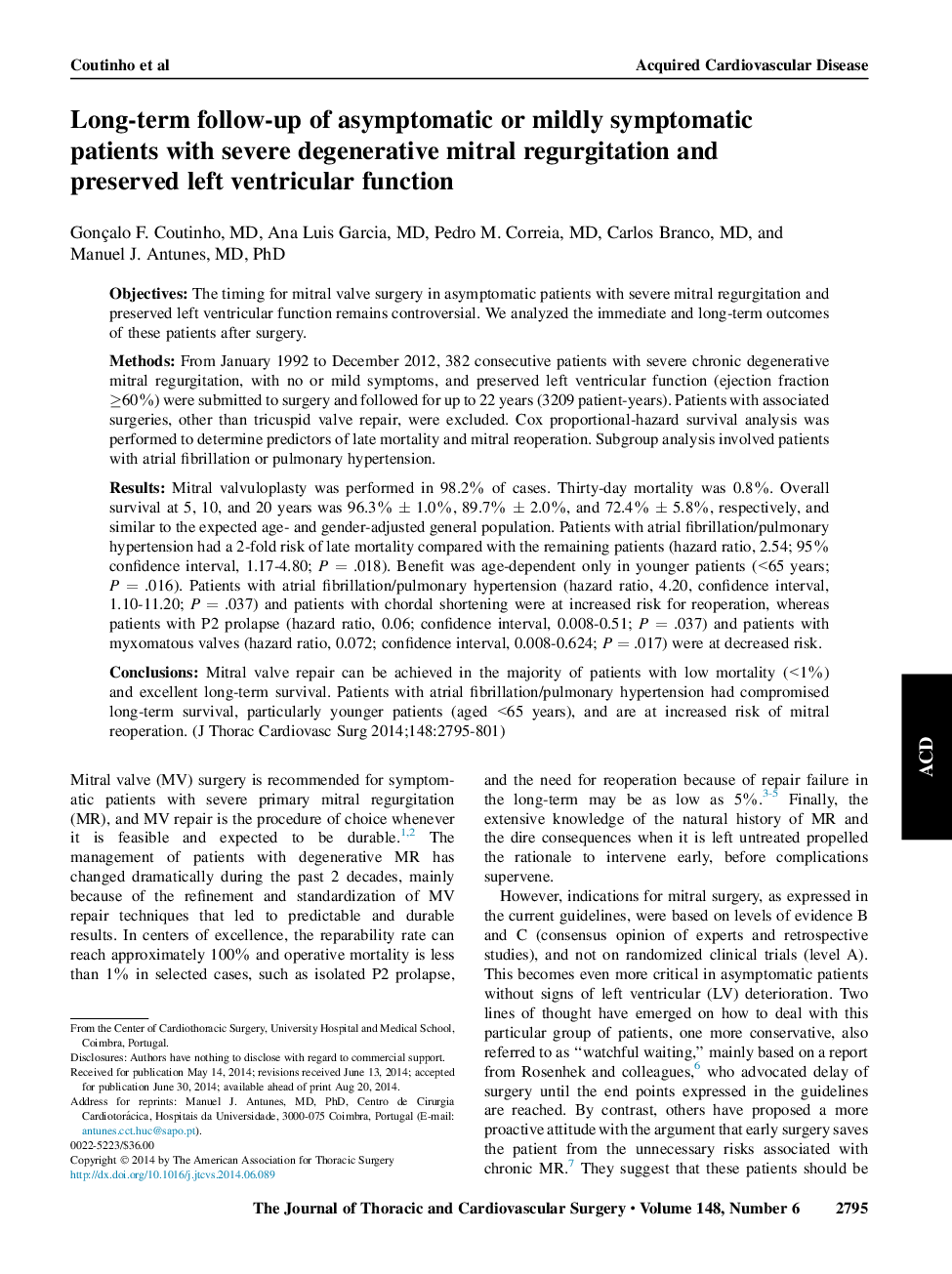| Article ID | Journal | Published Year | Pages | File Type |
|---|---|---|---|---|
| 5989881 | The Journal of Thoracic and Cardiovascular Surgery | 2014 | 7 Pages |
ObjectivesThe timing for mitral valve surgery in asymptomatic patients with severe mitral regurgitation and preserved left ventricular function remains controversial. We analyzed the immediate and long-term outcomes of these patients after surgery.MethodsFrom January 1992 to December 2012, 382 consecutive patients with severe chronic degenerative mitral regurgitation, with no or mild symptoms, and preserved left ventricular function (ejection fraction â¥60%) were submitted to surgery and followed for up to 22 years (3209 patient-years). Patients with associated surgeries, other than tricuspid valve repair, were excluded. Cox proportional-hazard survival analysis was performed to determine predictors of late mortality and mitral reoperation. Subgroup analysis involved patients with atrial fibrillation or pulmonary hypertension.ResultsMitral valvuloplasty was performed in 98.2% of cases. Thirty-day mortality was 0.8%. Overall survival at 5, 10, and 20 years was 96.3% ± 1.0%, 89.7% ± 2.0%, and 72.4% ± 5.8%, respectively, and similar to the expected age- and gender-adjusted general population. Patients with atrial fibrillation/pulmonary hypertension had a 2-fold risk of late mortality compared with the remaining patients (hazard ratio, 2.54; 95% confidence interval, 1.17-4.80; P = .018). Benefit was age-dependent only in younger patients (<65 years; P = .016). Patients with atrial fibrillation/pulmonary hypertension (hazard ratio, 4.20, confidence interval, 1.10-11.20; P = .037) and patients with chordal shortening were at increased risk for reoperation, whereas patients with P2 prolapse (hazard ratio, 0.06; confidence interval, 0.008-0.51; P = .037) and patients with myxomatous valves (hazard ratio, 0.072; confidence interval, 0.008-0.624; P = .017) were at decreased risk.ConclusionsMitral valve repair can be achieved in the majority of patients with low mortality (<1%) and excellent long-term survival. Patients with atrial fibrillation/pulmonary hypertension had compromised long-term survival, particularly younger patients (aged <65 years), and are at increased risk of mitral reoperation.
